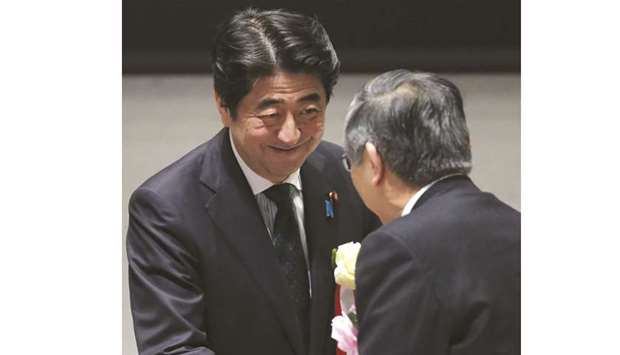Japanese Prime Minister Shinzo Abe and Bank of Japan governor Haruhiko Kuroda piled pressure on the country’s business leaders yesterday, urging them to lift wages to help boost the economy.
For the seventh straight year, Abe told a year-end gathering of business lobby Keidanren he hoped companies would boost wages during the annual shunto wage negotiations in spring.
“What’s important is investing in people,” Abe said. “Since I’ve been mentioning this every year, I’ll refrain from emphasising it too much but I have high hopes for next year.”
Japan’s weak wage growth has been a hurdle to long-term price gains. Wages rose an average 2.1% – well short of the 3% mark economists say is the minimum needed to help drive inflation toward 2% – at the spring talks this year, according to figures released by the Japanese Trade Union Confederation.
Kuroda, speaking after Abe, weighed in saying he hoped companies’ wage and price setting stances improve and that moderate gains in both would also be advantageous for them.
He has repeatedly said that the positive cycle of wage and price growth the central bank is striving for lacks strength. The BoJ maintained its policy stance in the latest December meeting. Abe announced this month stimulus package amounting to around ¥26tn ($239bn) spread over the coming years, with fiscal measures around half that figure to aid disaster relief, protect against downside economic risks and prepare the country for what comes after the 2020 Tokyo Olympics.
“Just so you are aware, I understand wages rose 12% in the year Tokyo Olympics was held about half a century ago,” Abe said, referring to the 1964 games.

Shinzo Abe, Japan’s prime minister (left), shakes hands with Haruhiko Kuroda, governor of the Bank of Japan, at a meeting in Tokyo. u201cWhat’s important is investing in people,u201d Abe said. u201cSince I’ve been mentioning this every year, I’ll refrain from emphasising it too much but I have high hopes for next year.u201d
